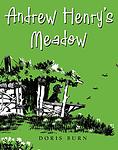Henry Green
Henry Green was the pen name of Henry Vincent Yorke, an English author best known for his novels which explore the complexities of class and human relationships in a nuanced and often experimental style. Born on October 29, 1905, and passing away on December 13, 1973, Green was a prominent figure in 20th-century literature. His works include titles such as 'Living' (1929), 'Party Going' (1939), and 'Loving' (1945), which are celebrated for their innovative use of language and dialogue.
Books
This list of books are ONLY the books that have been ranked on the lists that are aggregated on this site. This is not a comprehensive list of all books by this author.
-
1. Loving
"Loving" is a novel set in an Irish castle during World War II, focusing on the lives of the servants who work there. The narrative provides a detailed and intimate exploration of the relationships, gossip, and everyday routines of the domestic staff, while the war remains a distant threat. The book is known for its unique use of language and dialogue, as well as its exploration of class dynamics.
-
2. Living
"Living" is a novel that offers a vivid and absorbing depiction of the British working class in the 1920s. The narrative follows the lives of factory workers and their families in Birmingham, focusing on the minutiae of their daily lives, their struggles, hopes, and dreams. The novel is renowned for its unique style of writing, which eliminates definite articles and uses industrial Midlands dialect, creating a distinctive rhythm and cadence that mirrors the repetitive nature of factory work.
-
3. Blindness
This novel follows the life of a young man who becomes blind after an accident. Despite his disability, he continues to live his life fully, engaging in love affairs and adventures. The book explores themes of resilience, determination, and the human spirit's ability to adapt and thrive in the face of adversity. The protagonist's blindness serves as a metaphor for the human condition, highlighting the idea that we are all blind in some way, whether literally or metaphorically.
-
4. Party Going
"Party Going" is a novel that centers around a group of wealthy, self-absorbed young people waiting for a train to take them to the French Riviera. Their journey is delayed by heavy fog, forcing them to take up residence in a nearby hotel. As they interact with each other and the hotel staff, their shallow, self-involved natures are revealed. The novel explores themes of class, privilege, and the emptiness of a life lived only for pleasure.
-
5. Back
"Back" is a novel about a British man who returns home after being a prisoner of war during World War II. He struggles to adjust to civilian life and is haunted by the loss of his lover, who died while he was away. As he tries to move on, he becomes entangled in a complicated relationship with his lover's half-sister, leading to a poignant exploration of love, loss, and the human capacity for resilience.
-
6. Nothing
The novel explores the intertwined lives of a group of affluent, idle Londoners between the World Wars, focusing on the adulterous affairs and complex relationships within their circle. As the characters navigate love, boredom, and the search for meaning in their privileged existence, the narrative delves into the nuances of communication and the subtleties of social interaction. The story unfolds through a series of conversations and encounters, revealing the characters' inner lives and the emptiness that pervades their world of leisure and luxury.
-
7. Pack My Bag
"Pack My Bag" is a reflective autobiography written on the eve of World War II, offering a poignant look into the author's life and mindset during a time of impending crisis. The narrative weaves personal memories with broader social observations, exploring the author's privileged upbringing, education, and early adulthood. It delves into the complexities of class and the human condition, with a particular focus on the author's experiences working in his family's factory and the insights gained from interacting with workers from different social strata. The book serves as both a personal testament and a historical document, capturing the anxieties of a generation on the brink of global conflict.






